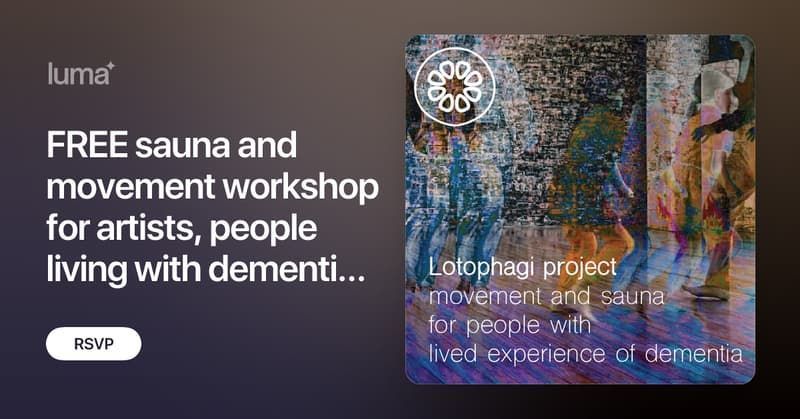
SWC Senior Research Software Engineer Laura Porta is co-organising a free event for carers, people living with dementia and artists.
📍Community Sauna Baths, London E9
📅6 Aug
Info and register ⤵️
lu.ma/dqvjka90
@neuroinformatics.dev.bsky.social
Research Software Engineering team at the Sainsbury Wellcome Centre and Gatsby Computational Neuroscience Unit, UCL. We build open source software for neuroscience and machine learning. https://neuroinformatics.dev Posts by @adamltyson.com

SWC Senior Research Software Engineer Laura Porta is co-organising a free event for carers, people living with dementia and artists.
📍Community Sauna Baths, London E9
📅6 Aug
Info and register ⤵️
lu.ma/dqvjka90
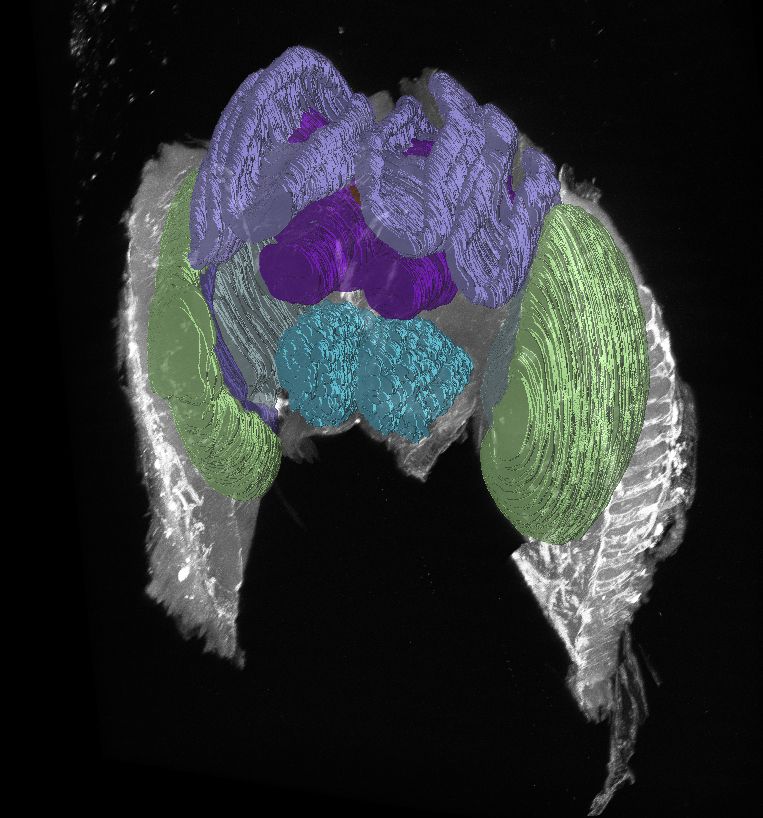
A three-dimensional view of the Kocher lab’s bumblebee brain atlas visualised with brainrender-napari.
The brain atlas of the bumblebee Bombus impatiens created by the @kocherlab.bsky.social is now part of BrainGlobe!
This is our first insect brain atlas. Thanks to Scott Wolf for adding it!
More details: brainglobe.info/blog/bee-atl...
Original paper: doi.org/10.1016/j.cu...
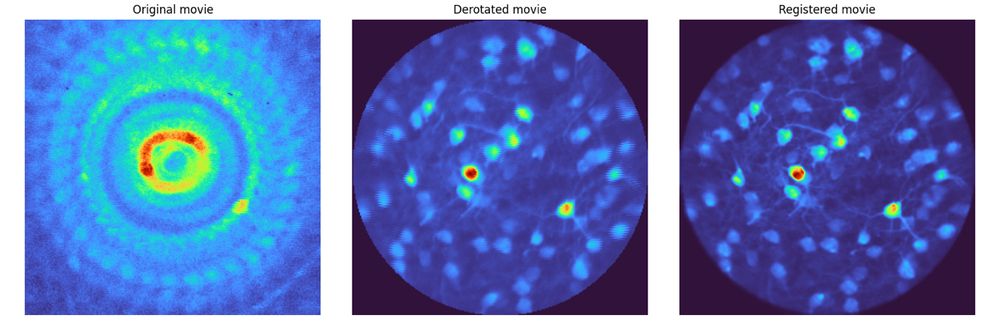
Image showing a rotated multiphoton image of some cells being derotated by the derotation software.
New blog post: derotation is a Python package for correcting motion artifacts in rotating multiphoton movies. It applies line-by-line correction, estimates the center of rotation, and integrates with downstream tools like Suite2p.
Read more: neuroinformatics.dev/blog/derotat...
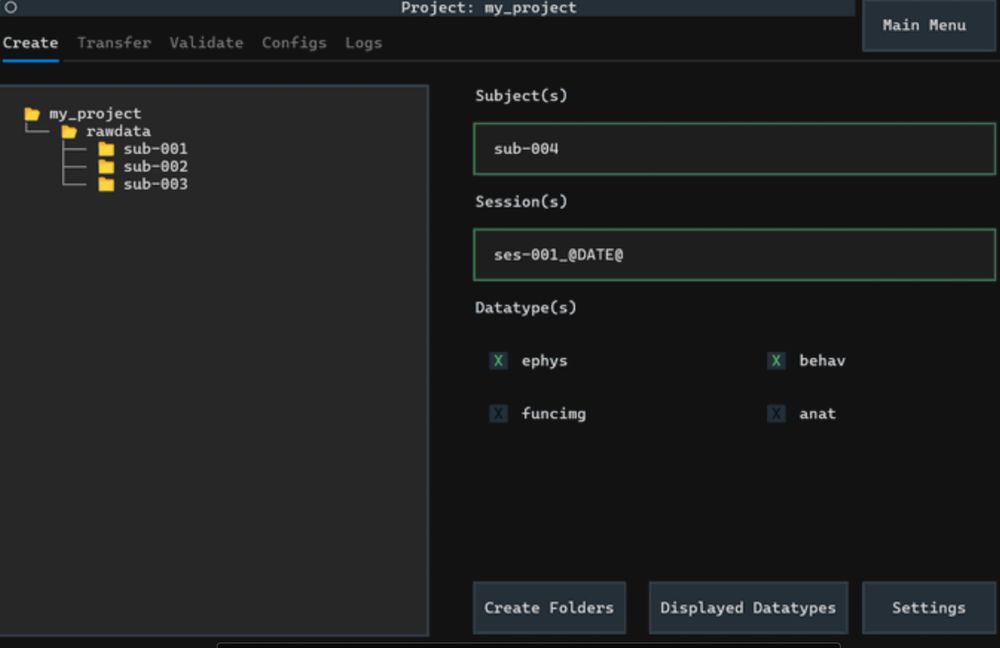
Datashuttle automatically creates and validates formatted folder trees for data storage. It also provides data transfer between machines.
Thanks to standardization, it is easy to transfer specific subsets of data (e.g., only the test sessions):
See datashuttle.neuroinformatics.dev for more
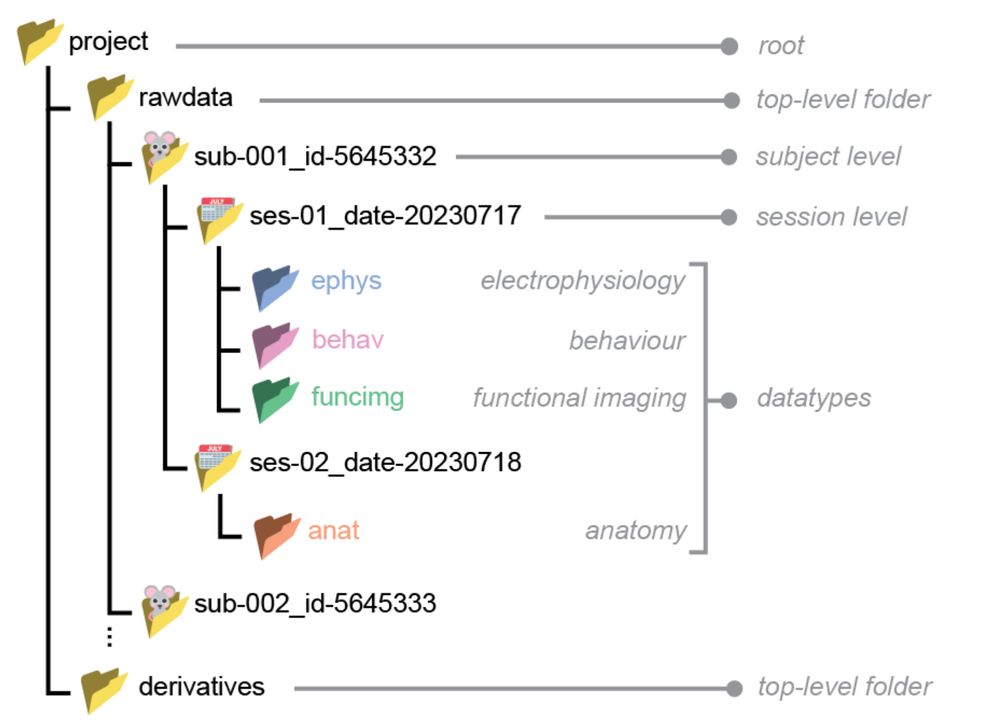
A lack of standardization can cause major headaches. Have you ever spent hours trying to make sense of how a colleague (or your past self) organized a dataset?
Datashuttle implements the NeuroBlueprint format to align projects across researchers
neuroblueprint.neuroinformatics.dev
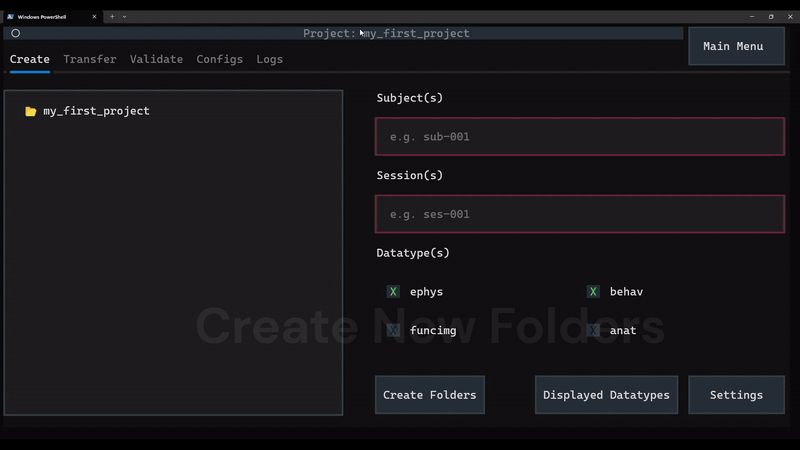
A new version of datashuttle is out! Datashuttle helps organise neuroscience experiments by automating folder creation and data transfer.
Version 0.7.0 adds automatic validation, extends the available datatypes and several other improvements.
Check it out at datashuttle.neuroinformatics.dev!
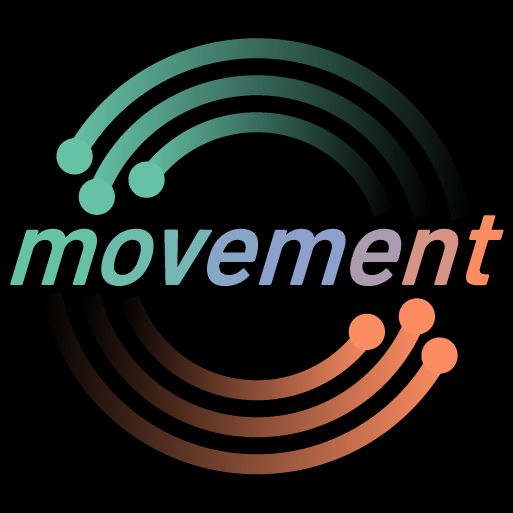
movement logo, showing the word "movement" within stylised pose tracks
More importantly, this is the first movement release with our new logo!
08.07.2025 16:19 — 👍 1 🔁 1 💬 0 📌 0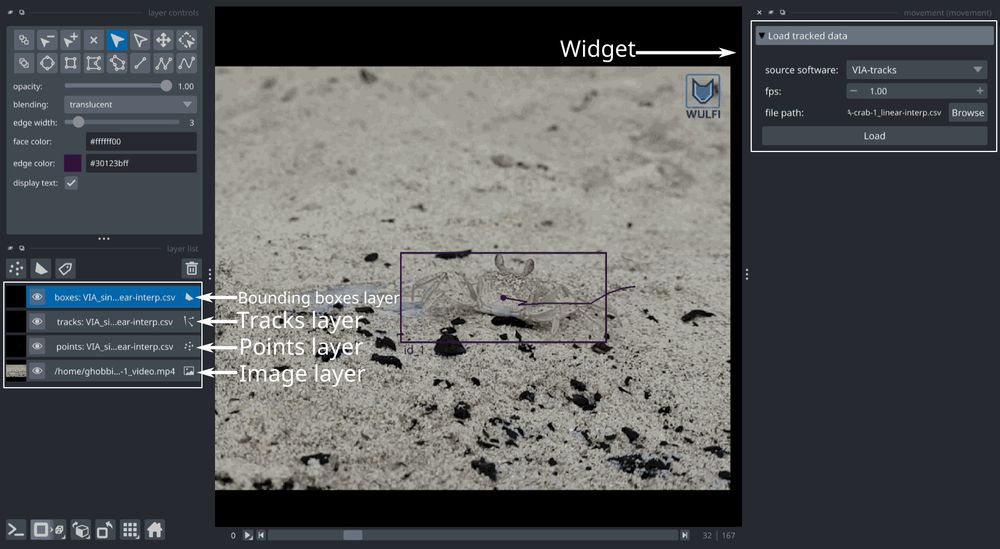
Screenshot showing bounding box visualisation in the movement napari plugin.
Version 0.8.0 of movement released! This version comes with support for bounding boxes in the napari plugin.
Release notes:
github.com/neuroinforma...
Open Software Week outcome emails will be sent over the next two weeks. Please make sure to check your spam if you've applied.
19.06.2025 12:56 — 👍 0 🔁 0 💬 0 📌 0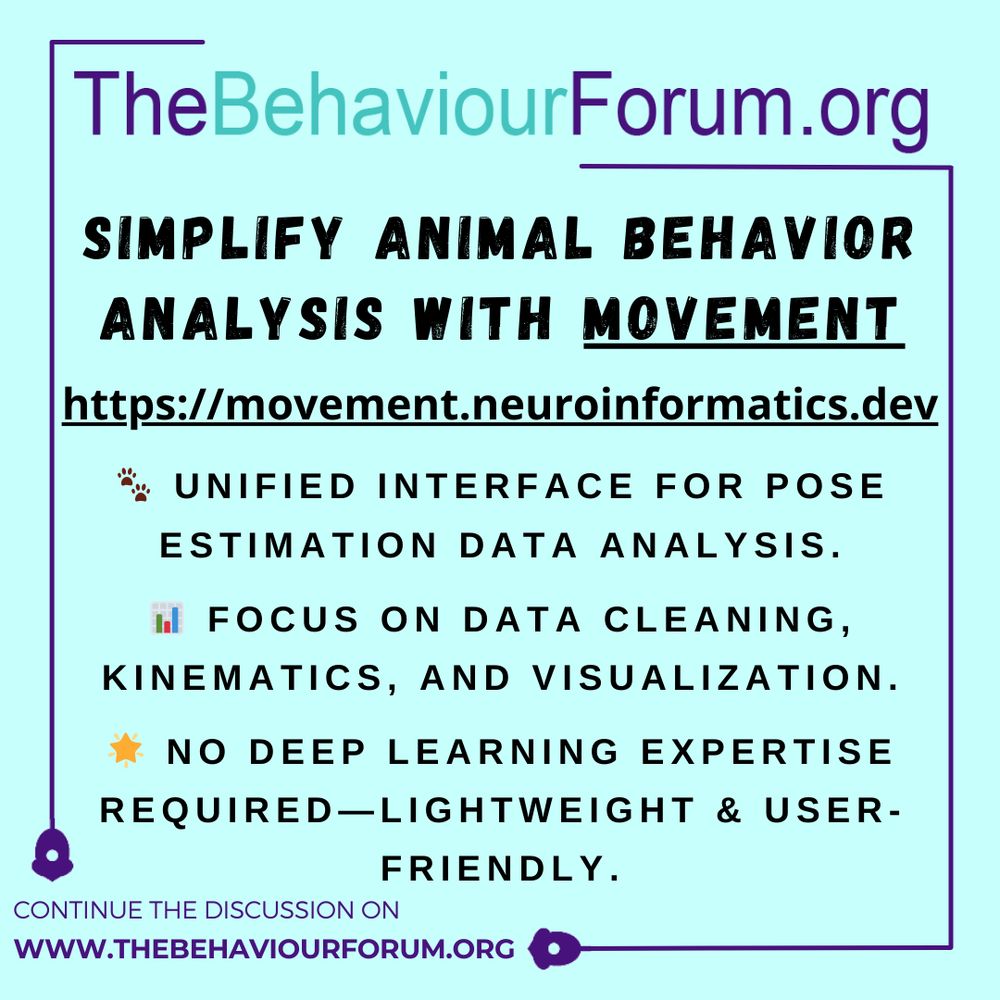
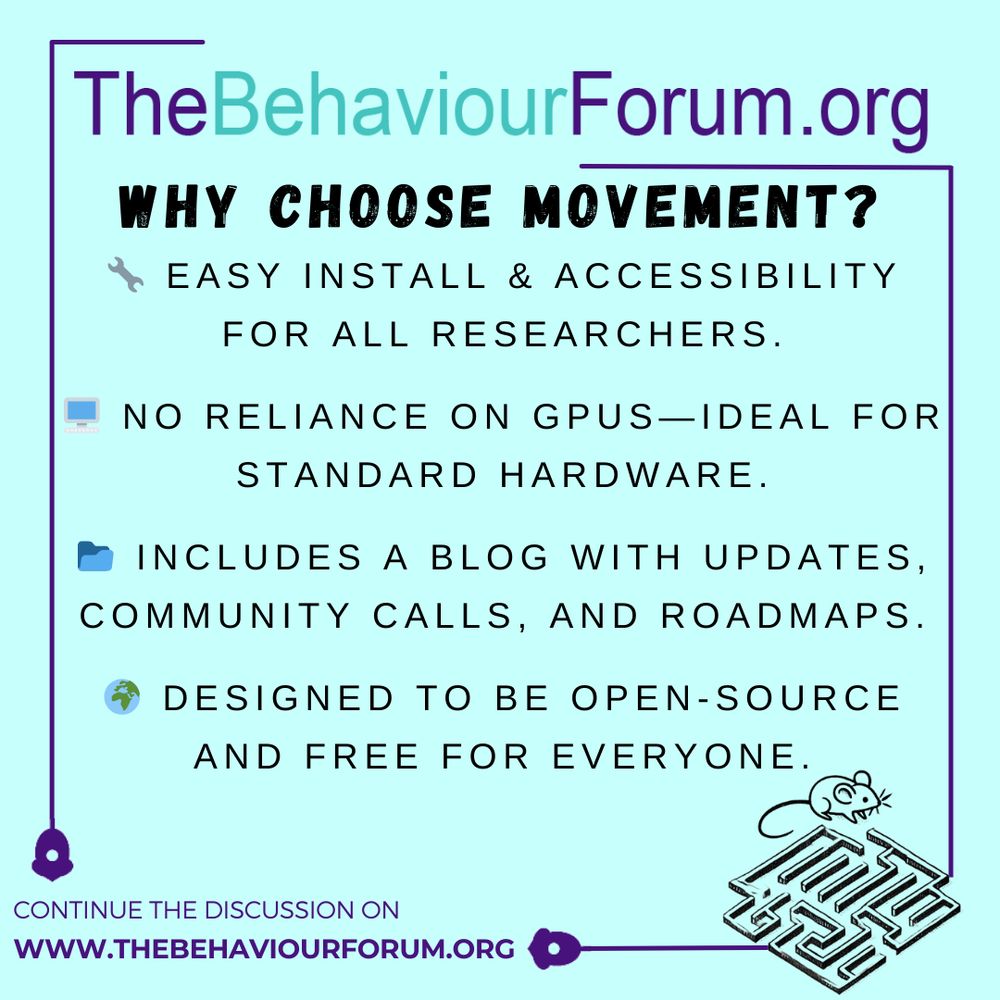
🐾 Exciting news from the Behaviour Forum: Meet movement, a powerful Python package for animal behavior research! 🚀 Developed with the community in mind, it’s here to simplify body movement analysis. Let’s dive in! 👇
#AnimalBehavior #OpenSource #Python
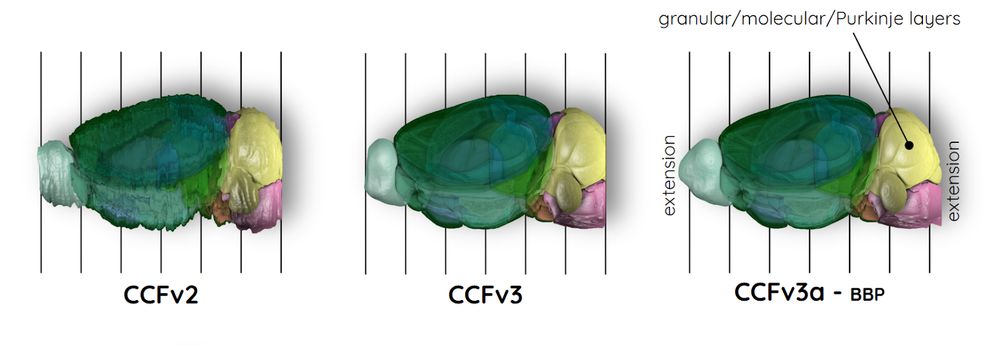
Different versions of the Common Coordinate Framework: CCFv2 and CCFv3 from the AIBS, as well as the extended and improved CCFv3a-BBP from the Blue Brain Project.
BrainGlobe has a new atlas, the "CCFv3 augmented mouse atlas"!
This atlas is an extended version of the CCFv3, designed to cover the rostral and caudal tips of the mouse brain and includes Nissl templates.
More details: brainglobe.info/blog/CCFv3BB...
Original paper: doi.org/10.1162/imag...
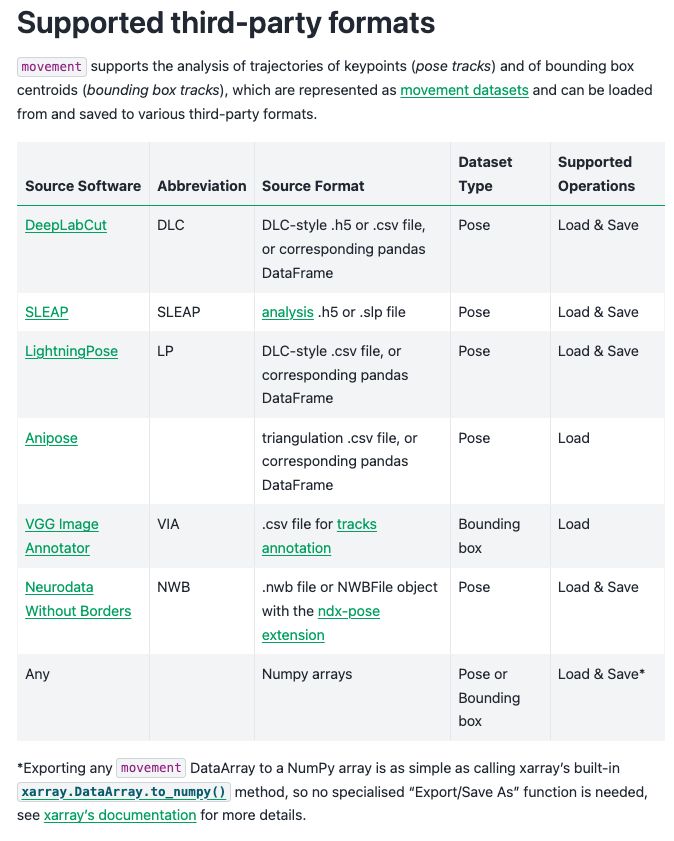
More information about input/output is here: movement.neuroinformatics.dev/user_guide/i...
Supported formats below:
Version 0.7.1 of movement released!
In addition to import/export from SLEAP, DLC, LightningPose, Anipose, VIA & NWB, movement now has a native format for saving data.
Saving to netCDF allows you to preserve the complete state of your analysis, including all variables, coordinates, and attributes.

One week left to apply to our "Open Software Week".
Join us for a week of training, community building and hacking on open-source neuroscience software tools. Includes animal behaviour, neuroanatomy and large data handling.
Travel stipends available.
neuroinformatics.dev/open-softwar...
Version 0.7.0 of movement released!
This version adds support for loading and saving pose data in Neurodata Without Borders (@nwb.org) format, using the ndx-pose extension.
We hope this will make it easier to use movement within larger data analysis pipelines.
movement.neuroinformatics.dev
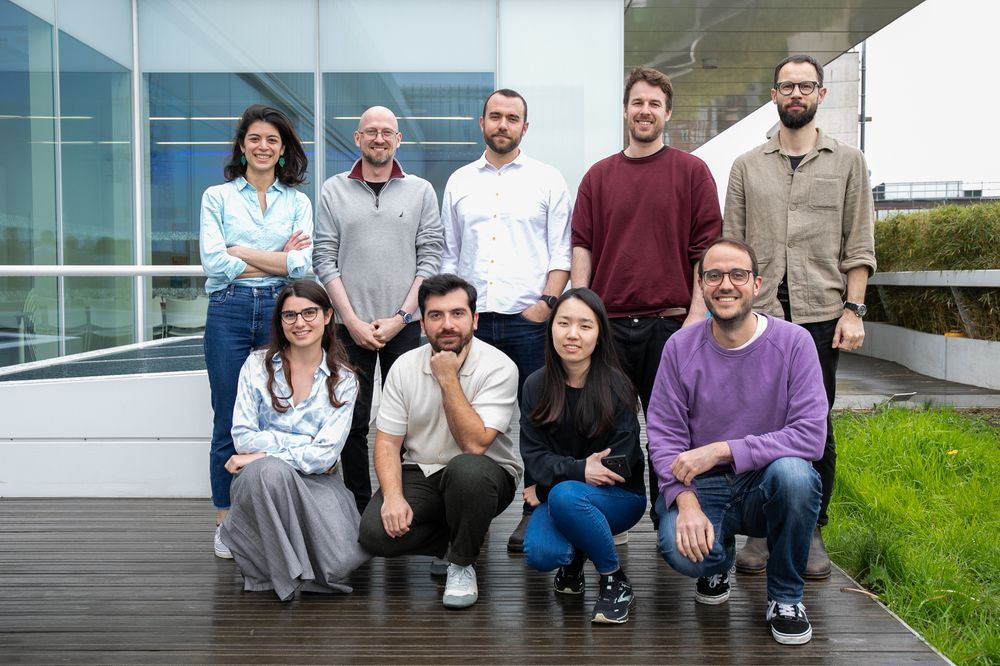
Photo of the Neuroinformatics Unit team
Join us for the @neuroinformatics.dev Open Software Week at SWC this summer!
This event will bring together researchers, developers and users of open-source software for some hands-on training, community-building and hacking.
Find out more and apply:
neuroinformatics.dev/open-softwar...
Isla Duporge, Sofia Minano, Nikoloz Sirmpilatze, Igor Tatarnikov, Scott Wolf, Adam L. Tyson, Daniel Rubenstein
Tracking the Flight: Exploring a Computational Framework for Analyzing Escape Responses in Plains Zebra (Equus quagga)
https://arxiv.org/abs/2505.16882
To answer a common question about our Open Software Week, the event (and travel stipends) are open to everyone, there are no limits as to who can apply.
neuroinformatics.dev/open-softwar...
Still a few weeks to register for some hands-on training and hacking on open-source tools for analysing animal motion, whole-brain microscopy with @brainglobe.info, and big imaging data. 🧠📈
Aug 11-15 at @sainsburywellcome.bsky.social in London.
"Free as in beer" and travel stipends available.
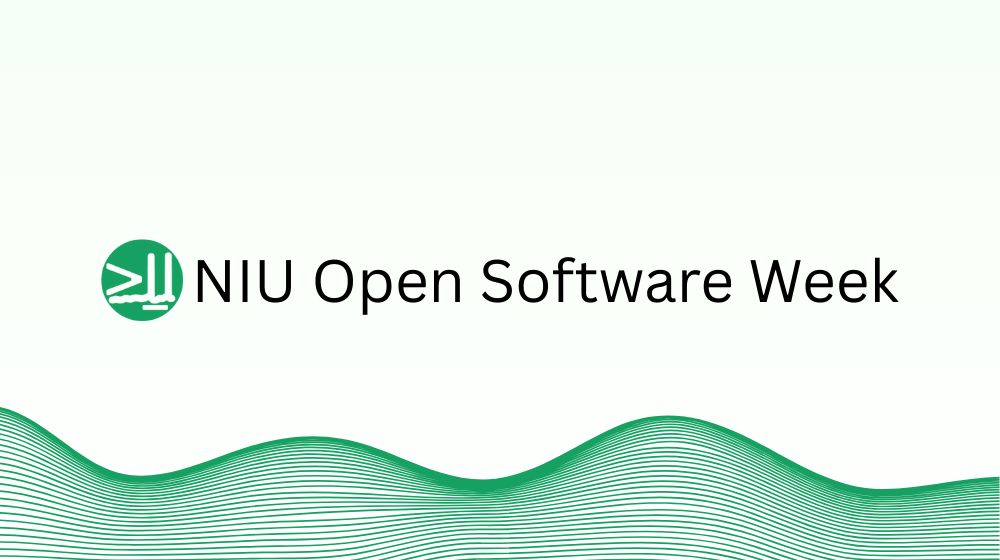
NIU Open Software Week
🟢 Applications are now open for two SSI Fellows' events: Niko Sirmpilatze's "Animals in Motion" and Alessandro Felder's "Big Imaging Data". These events will take place during the NIU Open Software Week running between Monday 11 and Friday 15 August in London.
www.software.ac.uk/news/ssi-fel...
We’ve received additional funding for this, so we expect to be able to fully fund the travel and accomodation for most participants outside of London.
25.04.2025 14:50 — 👍 3 🔁 5 💬 0 📌 1
Applications to our "Open Software Week" close on June 6th.
Apply now for a week of training, community building and hacking on open-source neuroscience software tools.
Stipends available for travel/accomodation etc.
neuroinformatics.dev/open-softwar...
Get in touch with any qu's.

We're excited to announce the Neuroinformatics Unit Open Source Week, August 11-15 2025 in London, UK.
Bringing together researchers and developers of open-source software for training, community-building and hacking.
No cost and travel stipends available.
neuroinformatics.dev/open-softwar...
1/
As part of this event, I will be running a 2-day hand-on workshop, for folks that want to use open-source software to study "Animals in Motion".
Thanks to the generous support of @softwaresaved.bsky.social & @sainsburywellcome.bsky.social
More info at neuroinformatics.dev/open-software-week
The Open Source Week is free of charge to attend, thanks to generous support from @softwaresaved.bsky.social, @sainsburywellcome.bsky.social & @gatsbyucl.bsky.social.
Travel stipends are available. Full details and application form is on our website:
neuroinformatics.dev/open-softwar...
6/
There will also be a series of satellite events:
1. Introduction to coding with Python
2. Careers clinic, about exploring non-traditional career paths in research
3. Collaborative coding with git
4. A hackday, where everyone can work together on open-source tools
5/
The third is "Big Imaging Data". This course is designed for imaging facility staff, image analysts, and imaging researchers interested in getting hands-on experience in, and building community around, free open-source tools to process big imaging data.
4/
The second is about @brainglobe.info. This course is designed for researchers and students interested in learning about open-source tools for analysing and visualising whole-brain microscopy data.
3/
There will be three main tracks. The first is "Animals in Motion".
This course is for researchers and students interested in learning about the latest free open-source tools for tracking animal motion from video footage and extracting quantitative descriptions of behaviour from motion tracks.
2/

We're excited to announce the Neuroinformatics Unit Open Source Week, August 11-15 2025 in London, UK.
Bringing together researchers and developers of open-source software for training, community-building and hacking.
No cost and travel stipends available.
neuroinformatics.dev/open-softwar...
1/